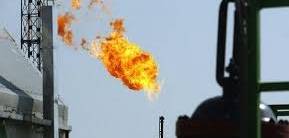
The Executive Vice President of the European Commission Frans Timmermans, reported that after months of debate, the Commission envisages a role for the "natural" gas in the green taxonomy of the EU , a classification system establishing a list of environmentally sustainable economic activities.
This change comes despite a leaked document from members of the Net Asset Owner Zero Alliance supported by UN representing about 9000 billion suggesting that they are against the inclusion of gas and nuclear energy in the EU's taxonomy.
Yet here we are.
If gas is recognized as green energy in the taxonomy, it would be eligible for green finance.
Gas is a fossil fuel and, like coal, is not green
It is of great concern that gas production can be considered green. Gas is a fossil fuel that contributes to carbon and methane pollution of the atmosphere through combustion, with dangerous life cycle emissions that are significantly worse for the climate than coal in the short term.
If gas is needed transiently for manufacturing purposes or has a short-term role to play in the decarbonization of economies, this does not justify gas projects being considered green, nor eligible for green finance.
Green or sustainable finance taxonomies finance assets or projects that achieve climate goals, thereby helping to attract capital to environmentally sustainable priority projects.
Put gas in the taxonomy of the EU, or any taxonomy also clouds the issue.
Taxonomies are meant to be factual and science-based. And EU taxonomy has long held the gold standard for green finance.
Lobbying the gas industry for the inclusion of green finance
The ongoing controversy around the EU's taxonomy has sent a disturbing message to energy planners around the world that gas industry lobbyists cannot be ignored.
After six months of resisting industry calls to add liquefied natural gas (LNG) to its green taxonomy, the South Korean government finally gave in in October.
The project "K-Taxonomy" of South Korea also now includes gas, prescribing a test technical review of the final emissions of 320 g dioxide per kilowatt-hour and a life cycle emission standard that is expected to apply from 2025. This means that new relentless LNG energy projects will be eligible for green bonds and loans over the next four years. years.
Pressure from lobbyists for gas to be recognized as "sustainable" in the EU and Asia indicates that gas companies are seeing their prospects diminish and their futures shrink. They are fighting for a place in the rapidly growing world of sustainable finance to expand the sources of capital available to them.
But the gas industry does not need specialized green financing. As in the past, fossil fuel projects will continue to raise funds through conventional sources of finance - traditional unlabeled debt market instruments.
ESG investors need certainty
Classifying gas as green poses a significant problem for investors.
ESG lenders and investors want to be sure that they are investing in truly clean and sustainable technologies, and rely on taxonomies as a guide to what those technologies are.
If taxonomies recognize gas as green, ESG investors may inadvertently find themselves supporting fuel rich in methane and carbon.
The new gold standard: Chinese taxonomy rejects LNG, gas and coal
The situation in the EU could allow China to take the lead in maintaining high-quality green energy financing standards.
The new catalog of projects approved by the Green Bonds China - its equivalent green taxonomy - now excludes electricity activities in gas, LNG and coal.
By reading the market, China shows that it knows how to attract private capital.
Earlier this year, People's Bank of China Governor Yi Gang stressed that government funding alone would not be enough for China to meet its net zero goals - which are expected to require around $ 22 trillion by 2021. to 2060 - and that, therefore, market players must be encouraged to step in and fill the void.
President Xi Jinping's commitment to accelerate the country's transformation to a green, low-carbon economy, and achieve carbon neutrality by 2060, has opened the door to a much more strategic vision on how China's green finance market is expected to grow and what technologies should be incentivized.
China is ready to take the reins of the EU. She understands that ESG-focused investors have become more savvy in their research and decision-making about what different taxonomies recognize.
Russia also reads tea leaves. This week it published its green taxonomy which only considers gas "green" if it responds to the same warnings as the EU. Taxonomy currently requires (i.e. life cycle emission of <100 g CO2 / kWh). New gas projects will not be financed with green capital with such strict restrictions.
Energy planners are laying the groundwork for our future
As investors focus on corporate sustainability credentials, policymakers will need to weigh the odds carefully. Justifying one way or another the role of gas in decarbonisation plans does not make them green investments.
The EU's ambitions to be a leader in green finance standards mean it has a responsibility to employ a strong and defensible rationale that will set the tone for the rest of the world.
The EU taxonomic flip-flop is not welcome.
Gas should not be recognized as a “green investment” in any taxonomy.
Sources
- Responsible Investors.
-  Christina Ng - responsible for fixed income work in the Asia Pacific for the Institute for Energy Economics and Financial Analysis (IEEFA). She has 20 years of experience in financial reporting and has developed financial accounting and reporting standards in Australia and Hong Kong.
Christina Ng - responsible for fixed income work in the Asia Pacific for the Institute for Energy Economics and Financial Analysis (IEEFA). She has 20 years of experience in financial reporting and has developed financial accounting and reporting standards in Australia and Hong Kong.
Posted on 2021-11-29 18:03








Comments